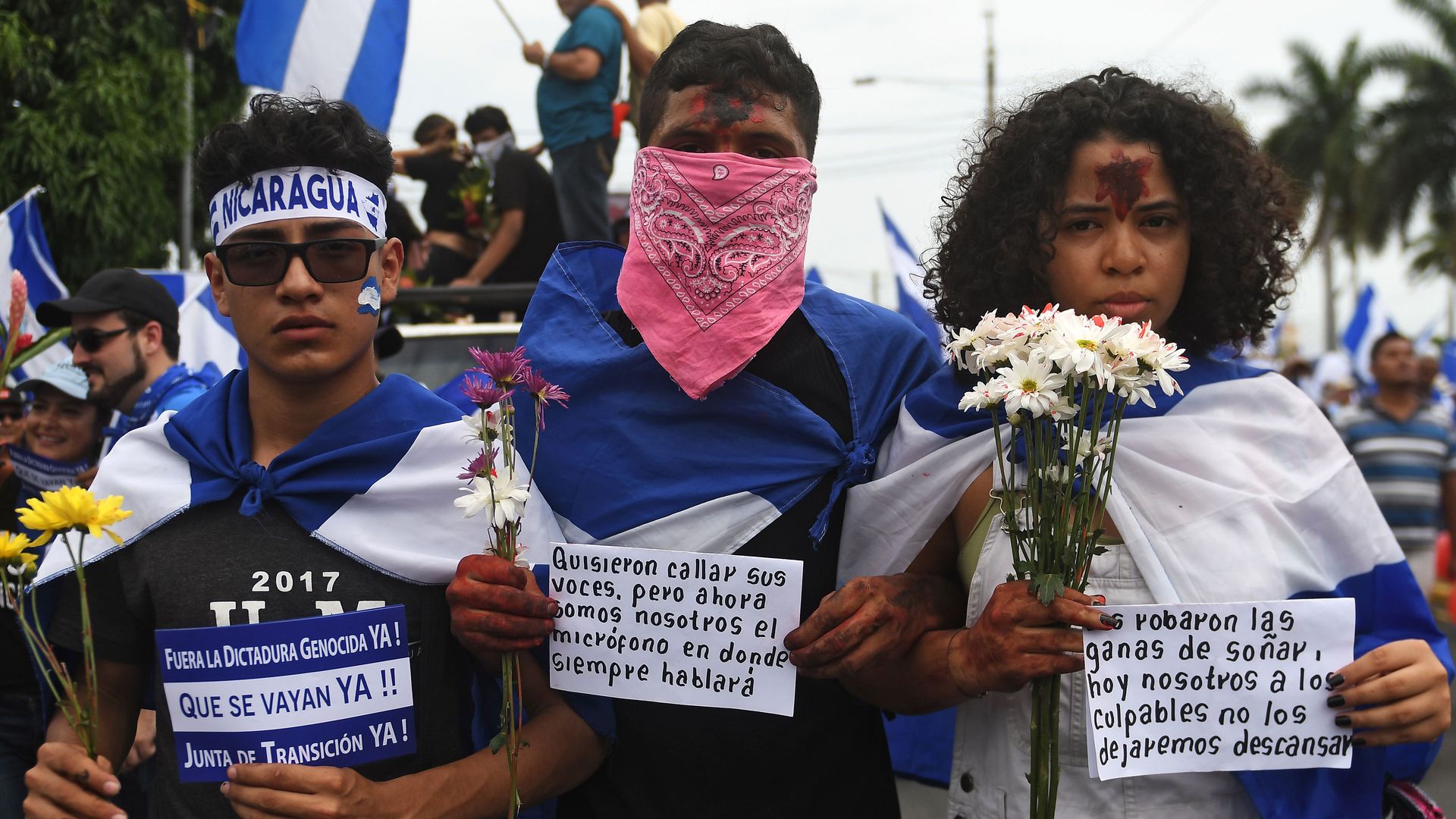Updated Jul 9, 2018
Expert VoicesNo end in sight for Nicaragua crisis as Ortega cracks down on protests
Add Axios as your preferred source to
see more of our stories on Google.

People attend a march honoring children killed during protests in Managua, Nicaragua, on June 30, 2018. Photo: Marvin Recinos/AFP via Getty Images.
